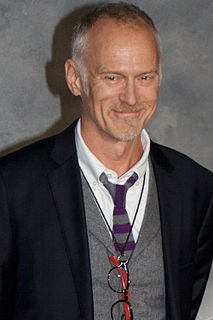A Quote by Jason Bateman
Television is much more of a producer's writer's medium, so a lot of the time, when you're directing a television show, they have a color palette on set or a visual style and dynamic that's already been predetermined, and you just kind of have to follow the rules.
Related Quotes
I did a good bit of episodic television directing, but directing a movie is so much more complicated. And there's so much more responsibility because the medium is very much a director's medium. Television is much more of a producer's writer's medium so a lot of the time when you're directing a television show they have a color palette on set or a visual style and dynamic that's already been predetermined and you just kind of have to follow the rules.
One thing that is very different technically is that you don't get a lot of coverage in television. Not like you do on a film. I know we don't have time for separate set-ups, so I will design a scene where I'm hiding multiple cameras within that set-up. That way, if I don't have time to do five set-ups, I can do four cameras in one set-up. It's a different kind of approach for that. For the most part, a lot of television, in a visual sense, lacks time for the atmosphere and putting you in a place.
I think television has become such an interesting place for characters and for incredible storytelling. Half of what I watch are television shows that I've become obsessed with. I just think that it's opened up so much, to be such an interesting and creative medium, and so many wonderful directors and actors are moving to television because it is a great medium for telling stories and for creating a character over a long period of time.
Television is much more complex, brain-challenging and involved than it used to be. It's almost impossible to watch a television show from 15 years ago; it's just too boring. I think modern television shows, with their intricate plots, are stimulating our minds. This is one reason IQs have been going up.
Television used to be made much more in a vacuum; the only feedback the audience had for a long time was in a Nielsen number that would arrive sometime after the show had been broadcast. And now, people are just completely engaged on so many levels, and I think that you have to find a way as a show creator to follow your own compass.
Television in the 1960s & 70s had just as much dross and the programmes were a lot more tediously patronising than they are now. Memory truncates occasional gems into a glittering skein of brilliance. More television, more channels means more good television and, of course, more bad. The same equation applies to publishing, film and, I expect, sumo wrestling.

































